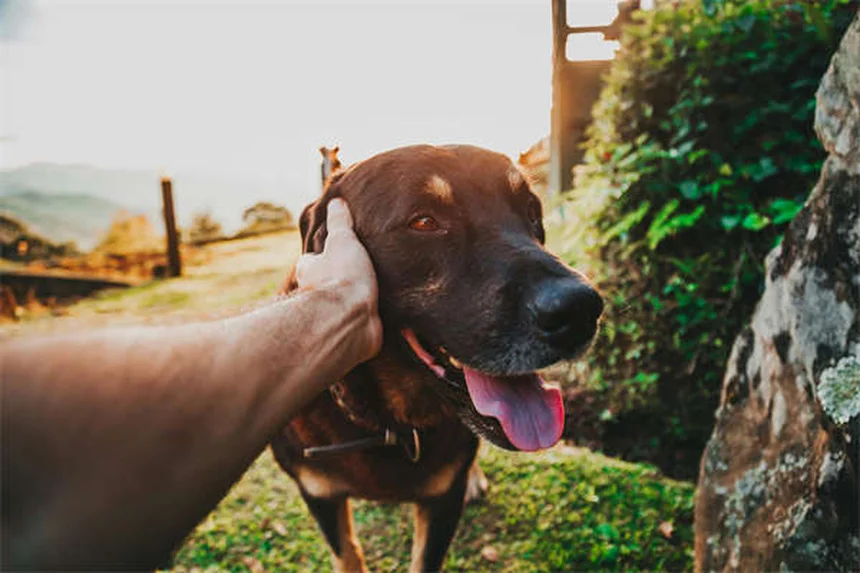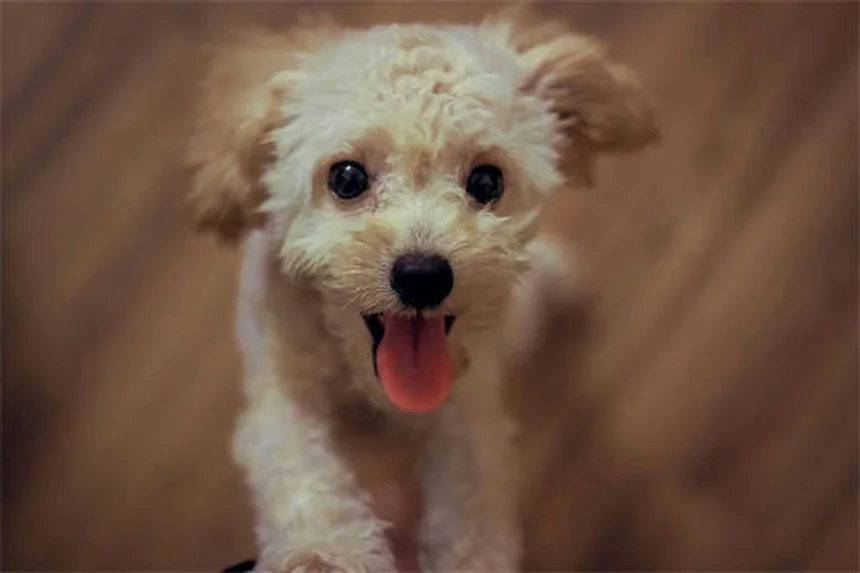Advertisement
Is your rabbit losing weight? The answer is: Yes, you should be concerned if your bunny drops more than 10% of its body weight. As a rabbit owner myself, I know how scary it can be when your fluffy friend starts looking thinner. But here's what you need to understand - rabbit weight loss isn't just about eating less. It could signal serious health issues like dental problems, digestive disorders, or even cachexia (that's when their body starts breaking down muscle).I've seen too many cases where well-meaning owners waited too long to act. That's why we're going to break down the key warning signs, explain when it's time to panic (and when not to), and share practical steps you can take today to help your bunny. Trust me, catching weight loss early makes all the difference!
E.g. :7 Common Pet Bathing Mistakes You're Probably Making
- 1、When Your Bunny Starts Losing Weight
- 2、Why Is My Rabbit Losing Weight?
- 3、Diagnosing the Problem
- 4、Getting Your Bunny Back to Health
- 5、Keeping Your Rabbit Healthy Long-Term
- 6、When to Really Worry
- 7、The Emotional Side of Bunny Care
- 8、Understanding Rabbit Metabolism
- 9、Beyond the Basics: Lesser-Known Weight Loss Causes
- 10、Nutritional Boosters for Underweight Rabbits
- 11、Behavioral Factors in Rabbit Weight Loss
- 12、Technology Meets Bunny Care
- 13、Building a Support System
- 14、FAQs
When Your Bunny Starts Losing Weight
Hey there rabbit owners! Let's talk about something serious but in a way that won't make you panic. When your fluffy friend loses more than 10% of their normal body weight, it's time to pay attention. And I'm not just talking about water weight here - this is real tissue loss we're discussing.
What Does Weight Loss Look Like in Rabbits?
Picture this: your once plump bunny starts looking like they're wearing a fur coat that's too big. That's often the first sign. But weight loss can show up in different ways:
Physical changes you might notice:
- Ribs becoming more visible
- Less padding around the hips and spine
- Decreased energy levels (your bunny might not binky as much)
Now here's something interesting - did you know rabbits can lose weight even when they're eating normally? That's because some conditions affect how their bodies process food. It's like putting gas in your car but the engine isn't running efficiently - the fuel just isn't being used right.
The Scary "C" Word: Cachexia
Cachexia is more than just weight loss - it's when your rabbit's body starts breaking down muscle and fat stores. Imagine your bunny's body is a savings account, and cachexia means it's making withdrawals without any deposits.
| Regular Weight Loss | Cachexia |
|---|---|
| Can often be fixed with better nutrition | Doesn't respond well to just more food |
| Might be temporary | Usually indicates serious illness |
| Body maintains some muscle | Muscle wasting occurs |
Why Is My Rabbit Losing Weight?
Let's play detective and look at some common culprits behind bunny weight loss.
 Photos provided by pixabay
Photos provided by pixabay
Dental Drama
Rabbit teeth never stop growing, and dental problems are like having a constant toothache. Would you want to eat if your mouth hurt? Me neither. Signs include:
• Drooling (wet fur around the mouth)
• Chewing strangely or dropping food
• Bad breath (rabbit breath shouldn't stink!)
Tummy Troubles
Rabbits have super sensitive digestive systems. When things slow down (called GI hypomotility), it's like a traffic jam in their intestines. Food stops moving, nutrients don't get absorbed, and voila - weight loss.
Here's a quick test: check their poop. Healthy rabbit poop should look like little cocoa puffs. If you're seeing small, misshapen pellets or none at all, that's a red flag.
Diagnosing the Problem
When you visit the vet (and you should!), come prepared with some key info:
Your Bunny's Health History
Think of this like telling your doctor about your symptoms. Important details include:
• When you first noticed weight changes
• Any changes in eating habits
• Recent stress (did you move? Get a new pet?)
• Current diet (be honest - does your bunny get too many treats?)
 Photos provided by pixabay
Photos provided by pixabay
Dental Drama
Vets have cool tools to figure out what's wrong. They might use:
1. Physical exam: Feeling for lumps, checking teeth, listening to heart and lungs
2. Imaging: X-rays or ultrasound (no, your bunny won't get baby pictures)
3. Blood work: Checking organ function and protein levels
Ever wonder why vets start with the simplest tests first? It's not just to save money - many rabbit health issues have overlapping symptoms, so we rule out the obvious stuff first.
Getting Your Bunny Back to Health
Treatment depends on what's causing the weight loss, but here's the general game plan:
Immediate Care
If your rabbit is in bad shape, the vet might:
• Give fluids under the skin (it looks like they're growing a water hump!)
• Provide pain relief if needed
• Start assisted feeding with critical care formula
Long-Term Solutions
Once stable, we focus on fixing the root cause:
Dental issues? Might need tooth trims or extractions.
GI problems? Adjust diet and maybe add motility drugs.
Infection? Antibiotics (but only certain kinds safe for rabbits).
Here's a pro tip: keep a baby scale at home to monitor weight weekly. It's the best way to catch problems early!
Keeping Your Rabbit Healthy Long-Term
Prevention is always better than treatment. Here's how to keep your bunny in top shape:
 Photos provided by pixabay
Photos provided by pixabay
Dental Drama
• DO feed unlimited hay (timothy or orchard grass for adults)
• DON'T overdo pellets (1/4 cup per 5 lbs body weight max)
• DO offer fresh greens daily (romaine, cilantro, parsley)
• DON'T give sugary fruits more than 2-3 times weekly
Environmental Enrichment
A happy rabbit is a healthy rabbit. Make sure they have:
• Space to run and play (no tiny cages!)
• Toys to chew (will help wear down those teeth)
• Hiding spots (bunnies need their alone time too)
Remember, rabbits are masters at hiding illness. By the time they show obvious signs, they're often very sick. That's why regular weigh-ins and vet checkups are so important!
When to Really Worry
Some signs mean you should get to the vet ASAP:
• Not eating for 12+ hours
• No poop for 12+ hours
• Difficulty breathing
• Extreme lethargy
Think of it this way - with rabbits, it's always better to be the overprotective parent than the one who waited too long.
The Emotional Side of Bunny Care
Let's be real - seeing your pet lose weight is scary. You might feel:
• Guilty ("Did I do something wrong?")
• Overwhelmed ("There's so much to remember!")
• Frustrated ("Why won't they just eat?")
Here's the truth: you're doing great by educating yourself. And remember, even the best bunny parents face health challenges with their pets.
Final thought? Love your bunny, watch their weight, and don't hesitate to call the vet when in doubt. Your fluffy friend is counting on you!
Understanding Rabbit Metabolism
How Rabbits Process Food Differently
You know how some people can eat anything and never gain weight? Well, rabbits are the opposite - their bodies are designed to extract every possible nutrient from their food. Their digestive system is like a high-efficiency factory that runs 24/7.
Here's the fascinating part: rabbits practice something called coprophagy - they eat their own special nighttime poop (called cecotropes) to get a second round of nutrients. If this process gets disrupted, your bunny could lose weight even while eating normally. It's like recycling nutrients to get the most out of every meal!
The Role of Gut Bacteria
Ever heard of probiotics for humans? Rabbits have an entire ecosystem of helpful bacteria in their gut that's even more crucial. When this balance gets thrown off, it's like firing all the workers in that nutrient-processing factory we talked about earlier.
Did you know that stress alone can disrupt this bacterial balance? A simple change like moving their cage or introducing a new pet can trigger digestive issues. That's why keeping your bunny's environment stable is so important for maintaining their weight.
Beyond the Basics: Lesser-Known Weight Loss Causes
Parasites You Might Not Know About
While we often think about fleas and ticks, there are microscopic parasites that can cause weight loss in rabbits. E. cuniculi is one sneaky culprit that affects about 50% of domestic rabbits without showing obvious symptoms at first.
These parasites are like tiny thieves stealing nutrients from your bunny's body. They can cause neurological issues too, which might make eating difficult. The good news? A simple blood test can detect them, and treatment is available.
The Impact of Chronic Pain
Imagine trying to eat dinner with a constant headache - not very appealing, right? Rabbits with arthritis or other chronic pain conditions often eat less simply because moving to their food bowl hurts.
Older rabbits are especially prone to this. You might notice them hesitating before jumping into their litter box or being less enthusiastic about treats. Pain management can make a world of difference in their appetite and weight.
Nutritional Boosters for Underweight Rabbits
Superfoods for Bunnies
While hay should always be the main event, certain foods can help pack on healthy pounds:
| Food | Benefits | How Often |
|---|---|---|
| Oat hay | Higher calories, great for weight gain | Can mix with regular hay daily |
| Alfalfa (for adults) | High protein and calcium | Small amounts 2-3x weekly |
| Banana (yes, really!) | High calorie, most bunnies love it | Small piece 1-2x weekly |
But here's a question: Why can't you just feed unlimited pellets to help a bunny gain weight? Well, that would be like you eating only protein bars - you'd miss out on all the fiber rabbits need for proper digestion. Too many pellets can actually cause more harm than good!
The Art of Assisted Feeding
When bunnies stop eating on their own, you might need to step in with syringe feeding. It's not as scary as it sounds - think of it like making a smoothie for your furry friend. The critical care formulas available are specially designed to provide all the nutrients they need.
Pro tip: Warm the mixture slightly (test on your wrist like baby food) and go slow. Most bunnies actually enjoy the taste once they get used to it. And don't worry about being perfect - even a little food is better than none at all.
Behavioral Factors in Rabbit Weight Loss
Social Dynamics at Play
Rabbits are social creatures, but their relationships can affect eating habits. A dominant bunny might prevent others from accessing food, or a grieving rabbit might lose interest in eating after losing a bonded partner.
Have you ever noticed your bunny seems depressed? They can experience real grief and stress just like we do. Sometimes all it takes is some extra cuddle time or rearranging their space to make them feel secure enough to eat properly again.
The Picky Eater Phenomenon
Some bunnies develop food preferences stronger than a toddler refusing to eat vegetables. The key is to introduce variety early and often. Rotate greens weekly so they don't get stuck on one type.
Here's a fun trick: try "hiding" new foods in their favorite spots or mixing them with preferred items. It's like sneaking veggies into a kid's pasta - before they know it, they're enjoying something new!
Technology Meets Bunny Care
Smart Tools for Weight Monitoring
Gone are the days of guessing if your bunny looks thinner. Now there are digital scales that connect to apps, tracking weight trends over time. Some even send alerts if there's a significant change!
For the tech-savvy bunny parent, there are even cameras that monitor food bowl activity. You can check if your rabbit is eating normally while you're at work. It's like having a bunny nanny cam focused on their health.
Online Vet Consultations
Can't get to the vet right away? Many clinics now offer virtual visits where you can show them your rabbit's condition via video. They can assess things like energy level and breathing patterns remotely.
While nothing replaces hands-on care, these services can be lifesavers for determining if you need emergency care or if it can wait for a regular appointment. Plus, it's less stressful for bunnies who hate car rides!
Building a Support System
Finding Your Bunny Community
Dealing with a sick pet can feel isolating, but you're not alone. Online forums and local rabbit rescue groups are full of people who've been through similar situations. They can offer practical tips and emotional support when you're worried about your furry friend.
Many rabbit-savvy vets even have support groups or educational sessions. It's like having a team of bunny experts in your corner, ready to help when you need them most.
When to Seek Professional Help
Sometimes love and good intentions aren't enough. If you're struggling to help your bunny gain weight despite your best efforts, don't hesitate to consult a veterinary nutritionist. These specialists can create customized diet plans that address your rabbit's specific needs.
Remember, asking for help isn't a sign of failure - it's proof of how much you care. Your bunny is lucky to have someone willing to go the extra mile for their health and happiness!
E.g. :Chronic Weight Loss and Tissue Wasting in Rabbits | PetMD
FAQs
Q: How can I tell if my rabbit is losing too much weight?
A: Here's how I check my rabbits' weight regularly: First, get a digital kitchen scale (the baby kind works great). A healthy adult rabbit should maintain a stable weight within about 5% fluctuation. You should worry when you notice these signs: 1) You can easily feel their spine and ribs without pressing hard, 2) Their hip bones become prominent, or 3) They've lost that rounded "pear shape". Pro tip: Weigh your bunny weekly at the same time of day for accurate tracking. If you see a 10% drop from their normal weight, it's vet time!
Q: What's the difference between normal weight loss and cachexia in rabbits?
A: Great question! As a rabbit owner for 10+ years, I've dealt with both. Normal weight loss might happen if your bunny's been less active or eating slightly less - this usually corrects with diet adjustments. But cachexia? That's serious business. It's when their body starts breaking down muscle tissue, and no amount of extra food helps. You'll notice extreme thinness, weakness, and often a poor coat condition. The scary part? Cachexia usually means there's an underlying disease like cancer or organ failure at work.
Q: My rabbit is eating but still losing weight - what could be wrong?
A: I've faced this exact situation with my own rabbit, Thumper. Turns out he had dental spurs that made chewing painful. Even though he was "eating," he wasn't getting enough nutrition. Other possibilities include: 1) Digestive issues where nutrients aren't absorbed properly, 2) Parasites stealing nutrients, or 3) Metabolic disorders like kidney disease. The key is to watch not just how much they eat, but the quality of their poop and energy levels too.
Q: What should I feed a rabbit that's losing weight?
A: From my experience rehabilitating underweight rabbits, here's what works: 1) Unlimited timothy hay (the foundation of their diet), 2) High-quality pellets (no colorful bits or seeds), and 3) Nutrient-dense greens like romaine and parsley. For immediate help, ask your vet about Critical Care formula - it's a life-saver for rabbits who need quick nutrition. Warning: Never suddenly change your rabbit's diet as it can shock their sensitive digestive system!
Q: When is rabbit weight loss considered an emergency?
A: Listen up, because this is crucial: You need emergency vet care if your rabbit shows any of these signs: 1) Not eating for 12+ hours, 2) No poop for 12+ hours, 3) Extreme lethargy (can't lift head), or 4) Difficulty breathing. Here's why rabbits are different: their digestive systems must keep moving constantly. When they stop eating, they can develop GI stasis which can be fatal within 24 hours. Don't wait - it's always better to be safe than sorry with bunnies!







